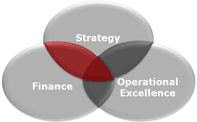 BERLIN - The succession of European Central Bank President Jean-Claude Trichet will not be a topic at this week's Group of 20 meeting and will be dealt with after March, German Finance Minister Wolfgang Schaeuble said on Friday. "We will then see (if there will be a German candidate). The important thing is that we will have a good candidate," Schaeuble added in an interview with German radio channel Deutschlandfunk.BCE,EURO,Dollar,RON,Crisis Agerpres, Mediafax
BERLIN - The succession of European Central Bank President Jean-Claude Trichet will not be a topic at this week's Group of 20 meeting and will be dealt with after March, German Finance Minister Wolfgang Schaeuble said on Friday. "We will then see (if there will be a German candidate). The important thing is that we will have a good candidate," Schaeuble added in an interview with German radio channel Deutschlandfunk.BCE,EURO,Dollar,RON,Crisis Agerpres, MediafaxFRANKFURT - Emergency borrowing from the European Central Bank remained exceptionally elevated for a second straight day on Friday, intensifying speculation that one or more euro zone bank might be facing new funding problems. ECB figures showed banks borrowed more than 16 billion euros in high-cost emergency overnight funding, the highest amount since June 2009 and well above the 1.2 billion euros which banks were taking before the figure first jumped on Thursday. The ECB gives no breakdown of the borrowing figures and declined to comment on Friday when asked for an explanation for the jump. Traders remained unsure whether the spike was due to a serious funding issue or whether a bank had simply made an error earlier in the week by not borrowing enough at the ECB's regular weekly funding handout. If a bank, or number of banks, did not get enough funding, and were unable to make up the difference in open markets, they would be forced to use the ECB's emergency facility until the next ECB tender came around. The next ECB offering is on Tuesday, banks get the money on Wednesday, meaning any change would evident in figures published early on Thursday. "As no bank or banking group from any euro zone country is aggressively seeking money in the interbank market at the moment, it is likely that something went wrong at the main refinancing operation," said one euro zone money market trader. "The bank or banking group needs to tap the ECB for the money whether they like it or not, or they are doing that so as not to appear active on the money market and to thereby be stigmatized," he added
European bank shares were down 1 percent by 1100 GMT while the euro fell against the dollar and other major currencies for much of the morning. Money markets showed little reaction, however. Key euro bank-to-bank lending prices remained on a downward trajectory, a direction traditionally at odds with rising tensions. The theory that the spike was due to human error appeared to be supported by data from the ECB's latest weekly funding operation. Banks borrowed the lowest amount since June at the tender, 19 billion euros less than the previous week and well below expected demand of around 160 billion euros.
However, a monetary source in Italy, speaking on condition of anonymity, told Reuters that the increase in borrowing was not a technical problem and was a sign that money markets were still not functioning correctly and geographically split in the wake of the global financial crisis. The source said the Italian banking system continued to have good access to money markets, while high-level Spanish financial source said the jump was not down to Spanish banks. The borrowing jump added extra complexity to the question of whether the ECB will scale back, or extend, its money market support measures at its next meeting on March 3.
ECB President Jean-Claude Trichet said in a recent interview that the health of money markets had improved, although Belgium's Guy Quaden said this week liquidity support remained necessary. "If the increased use of the marginal borrowing facility is due to new problems in the banking system this would call for an extension of the ECB's liquidity support," said UniCredit analyst Luca Cazzulani. "The ECB knows exactly who is borrowing the money and why they are doing it. If it is due to a mistake then it should not influence their thinking at all." The extra 0.75 percent which banks have to pay for overnight funding from the ECB normally means it is used only as a last resort. The last time before this week that overnight borrowing exceeded 10 billion euros was on June 24, 2009, when it was 28.7 billion euros, the highest ever. This year, emergency overnight borrowing has been above 1 billion euros only twice. Traders said while mistyping the required amount or missing the ECB's tender altogether would be an unlikely mistake, it could happen. "It would be a huge oversight and pretty unlikely but it is possible if a lot of things conspired against you," said one London-based money market trader. "If it is a mistake then someone's boss is not going to be very happy." A number of banks, mainly from the euro zone's most debt-strained countries but also troubled banks in core countries, remain barred from open money markets and almost completely dependent on the ECB for funding.



















